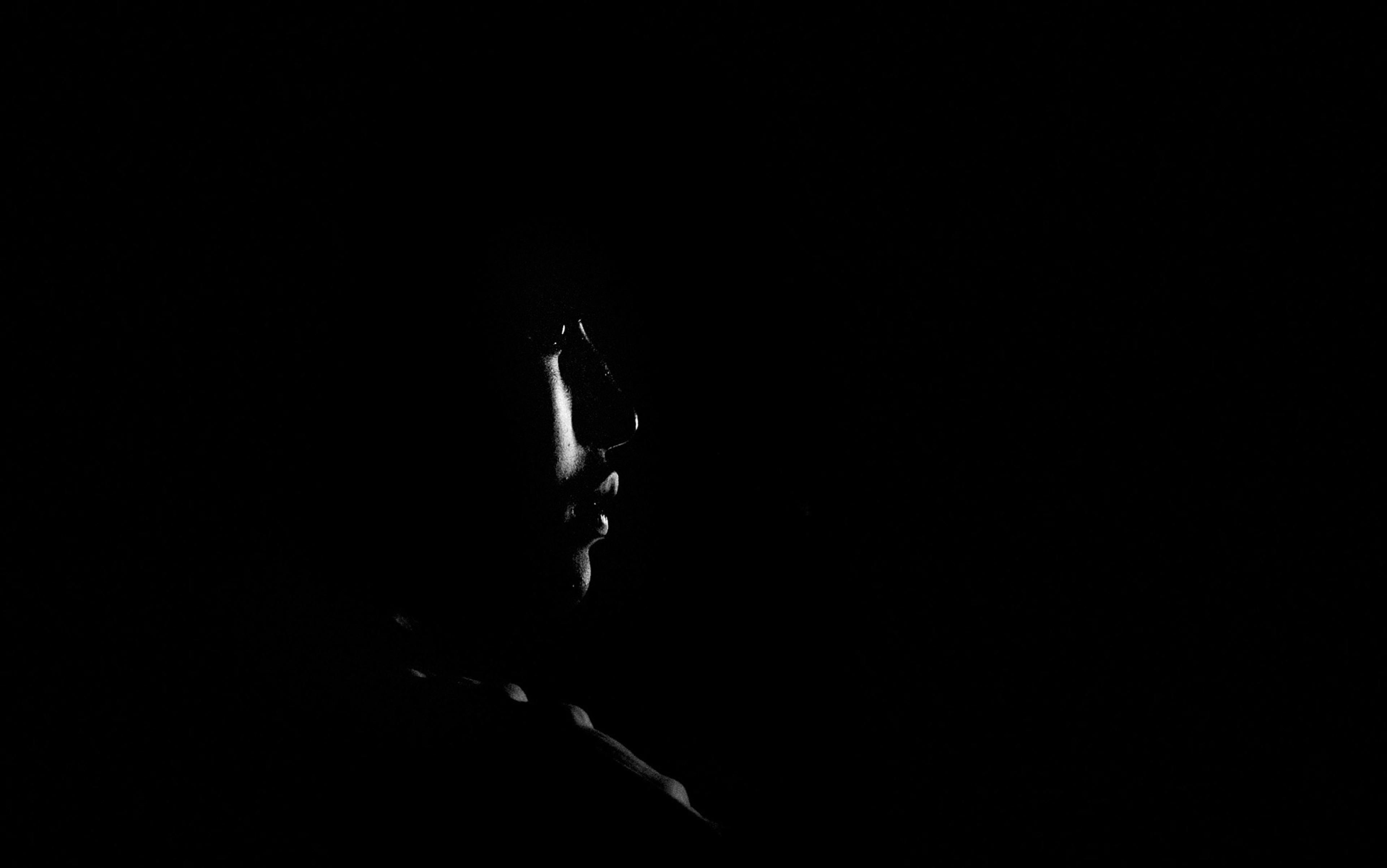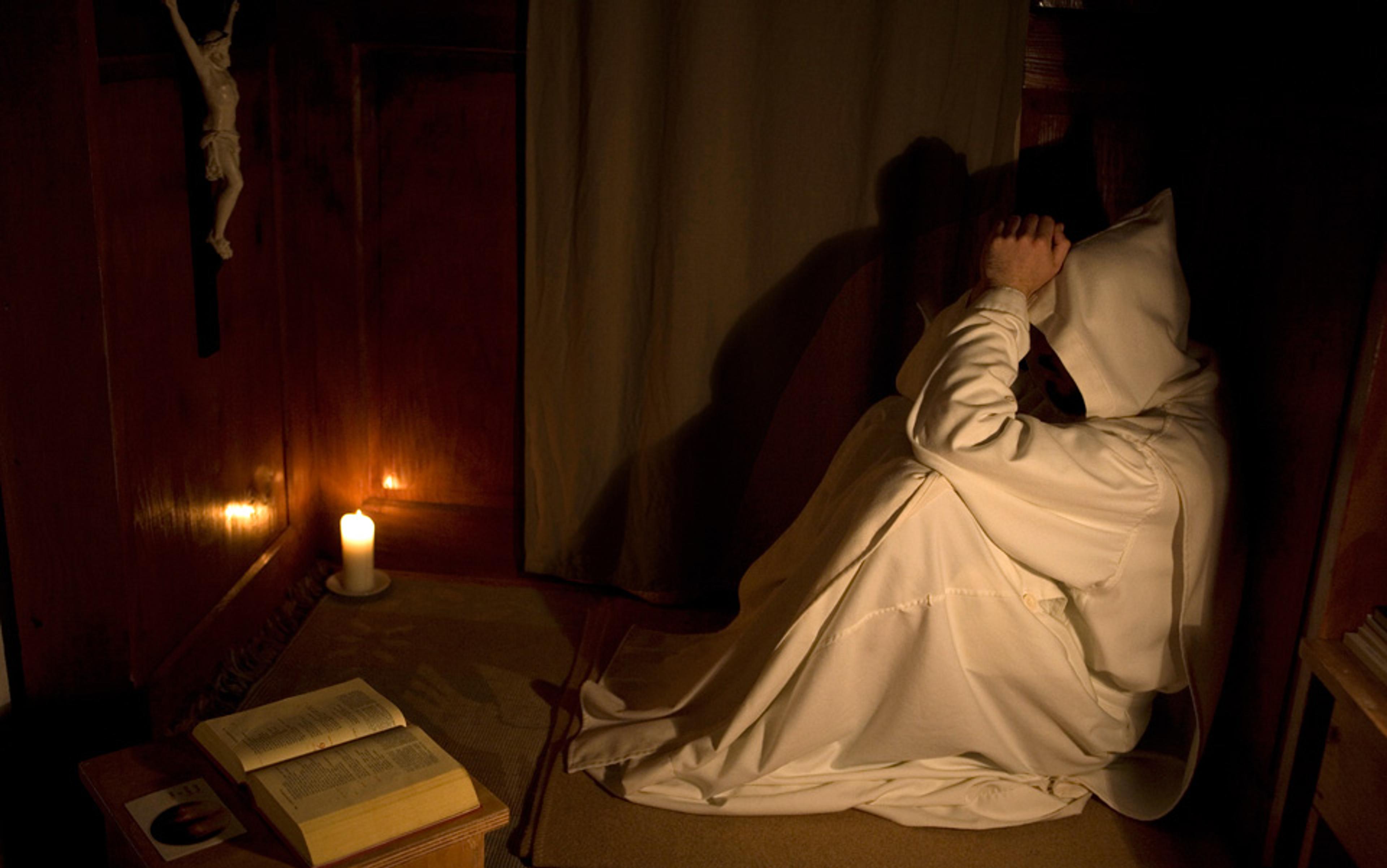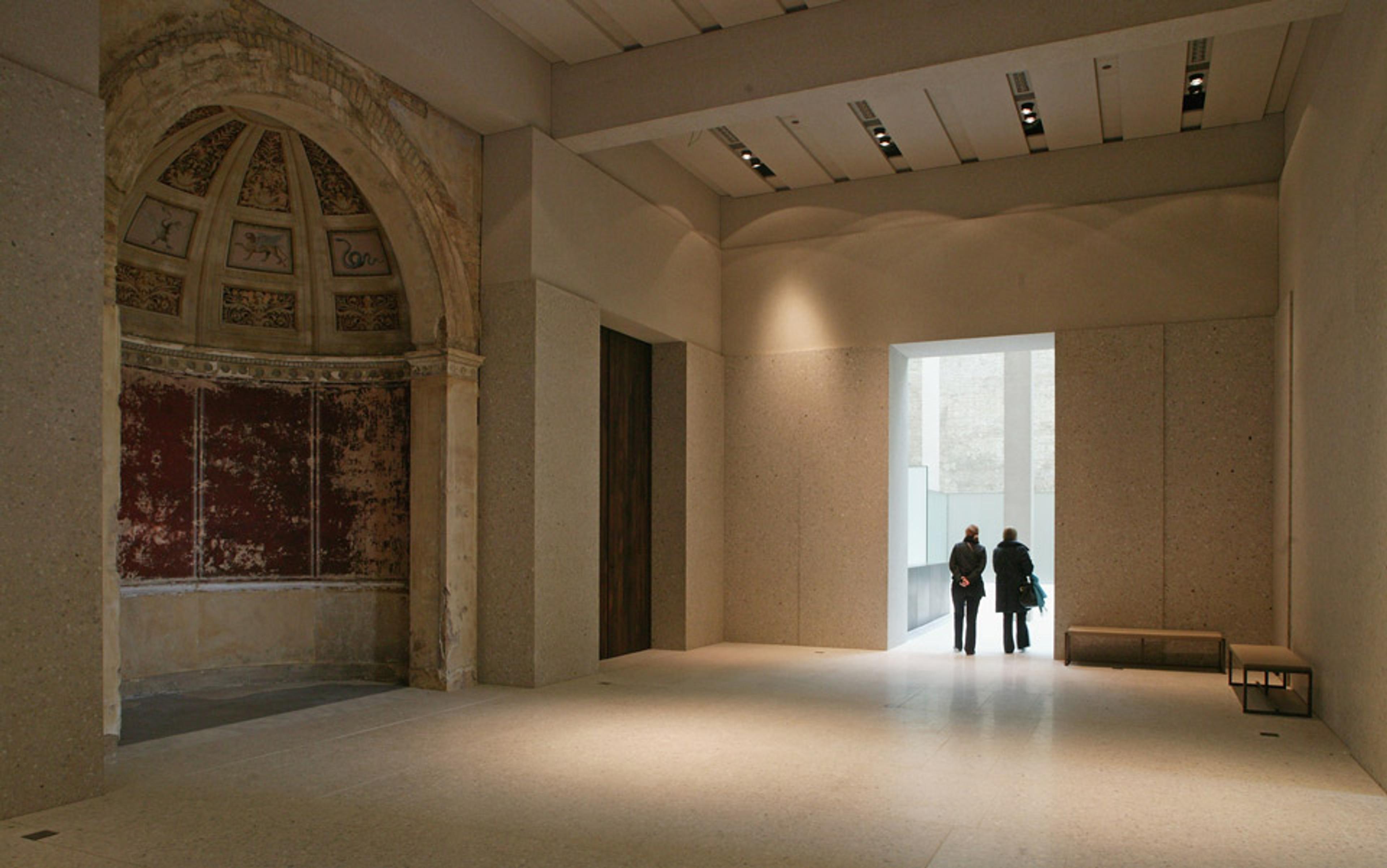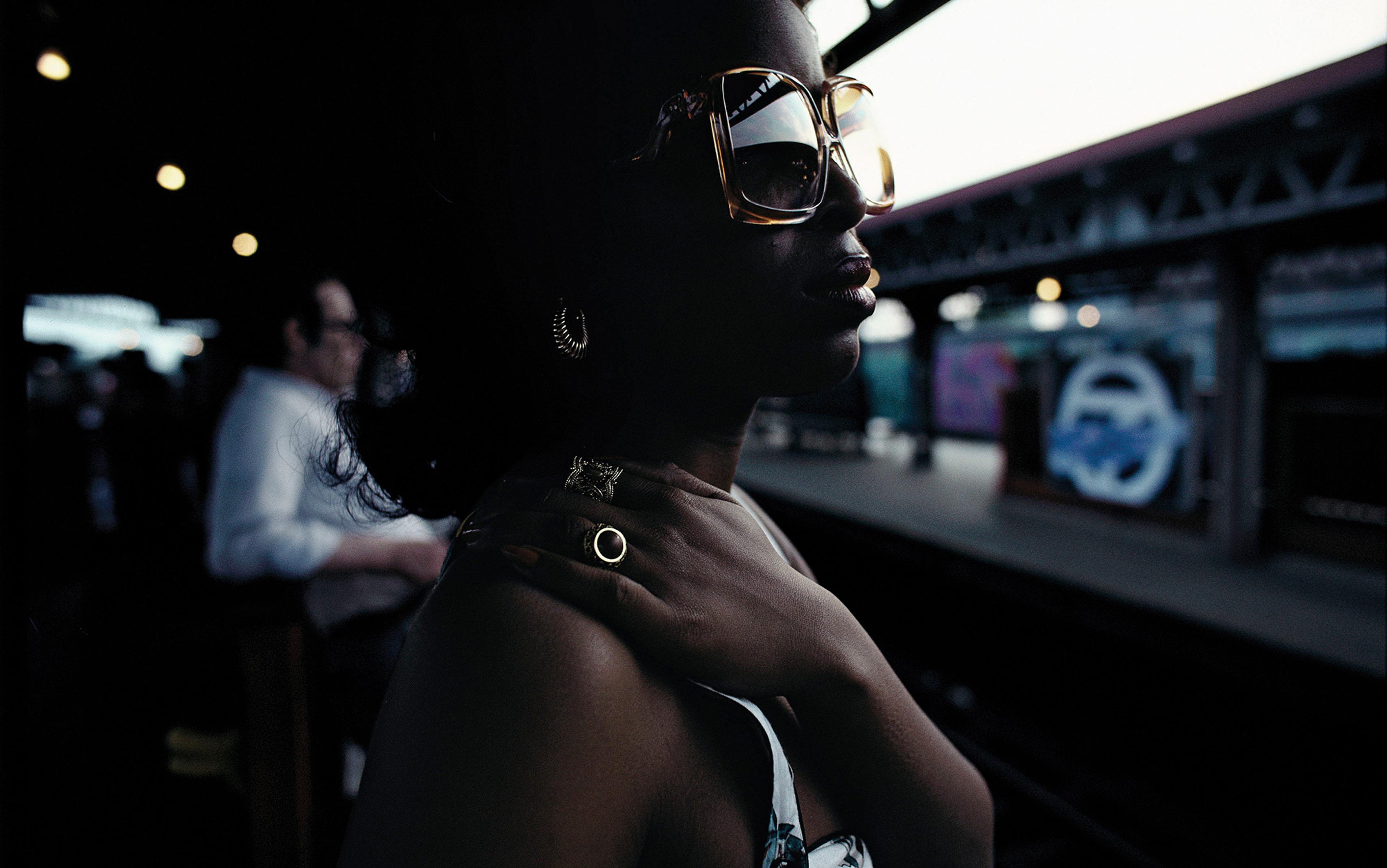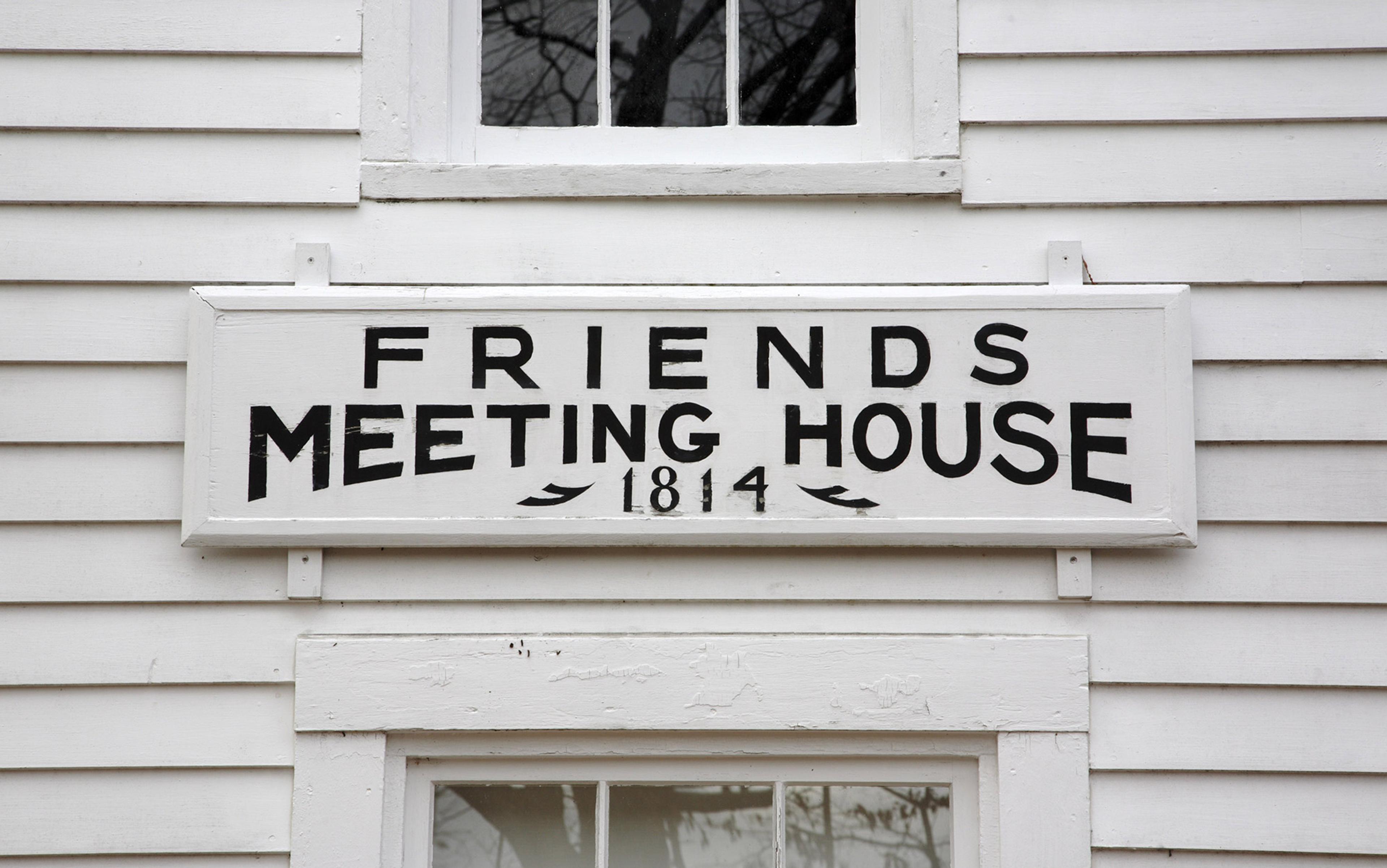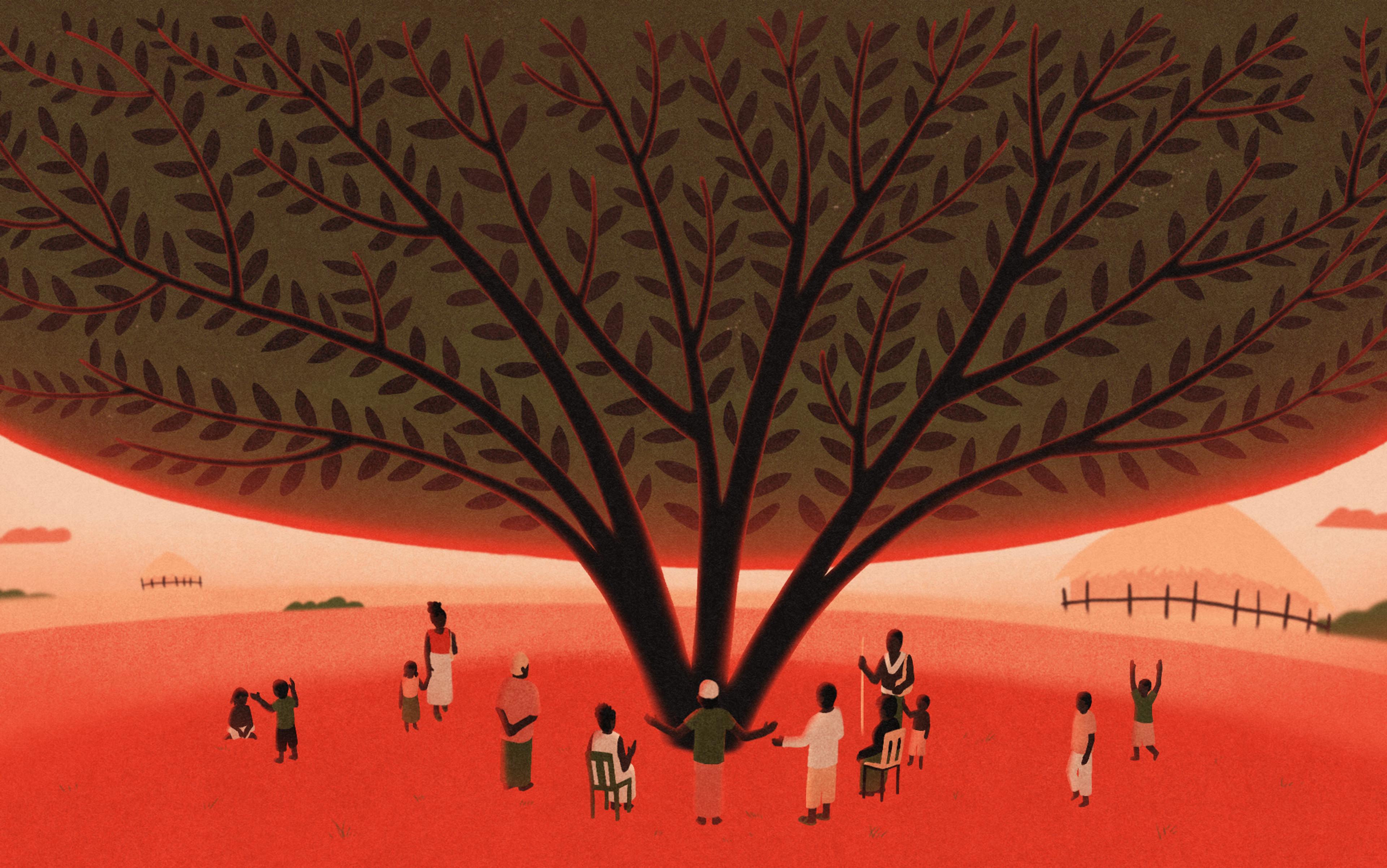And this is how it begins. My grandmother Gertrude Berry passed away at the age of 53, when I was three or four years old. I remember the heartiness and grit of her laughter, her smell as she holds me on the front porch, smoking a cigarette. The traces of comfort and care. But because she was a smoker, and drank, on her death she was cast as ‘unsaved’ according to the doctrines of our Blackpentecostal church in New Jersey, where my father was assistant pastor.
It was the day before her funeral. In the night, I woke up and walked to the threshold of my parents’ room, where I shouted into the dark: ‘We can make it!’ After this speech, I turned around and went back to bed, where I lay down and fell back asleep. I don’t remember the episode, but it absolutely happened, and it absolutely provided what – according to my mother – was the strength necessary to endure the day.
In that boy-child, there was something about the desire to practise comfort and care that was also an openness to worlds, an enchantment with possibility, a desire for connection to all that was and was not tangible. That desire would go on to find expression years later in my own queer sexuality, a mode of being that, like my grandmother’s, the doctrines of Blackpentecostalism would certainly condemn. (‘Blackpentecostal’ is a portmanteau I coined and elaborate in my book Blackpentecostal Breath: The Aesthetics of Possibility.)
Growing up as a member of Blackpentecostal churches, these feelings within me took on new life. The kindness of the saints taught me about care and concern as a method for engaging others; the church showed me, in a world replete with antiblack racism, that some things are most deeply felt when one retreats into the dense folds of the social life of blackness, when one escapes into the sound of handclaps, foot stomps, tambourine and praise-noise.
But the dogmas of Blackpentecostalism could also sever and forestall care. As my desire expanded into queer sexuality, I’d reflect on the doctrine that lives like mine were abominable, and the gap that produced within. I wondered about the space between the care my grandmother practised – a care I can remember only as the feel I have for her – and the eternal torment I understood to be her denouement.
Blackpentecostalism is a site of such gaps and contradictions, at least as I theorise it. The Pentecostal movement emerged as a sect of Christianity in 1906, in a rundown stable on Azusa Street in Los Angeles, California. A motley assortment – Black, Korean, Latinx, white; women, men and children; mostly working-class but some rich – found an experience of speaking in tongues as the cause for their gathering, a sign of their baptism in the Holy Spirit, of their direct connection to God. In this, Blackpentecostalism represents a kind of escape into an intensity of noise. But it is distinct from the escape held up by a Western mystical tradition, which traces its genesis to Plato, Plotinus, Ambrose, Augustine, and the monks who sought solitude in caves and deserts. Unlike the Western mystics, Blackpentecostals do not retreat from the social world, and do not privilege sight as the contemplative ideal through which contact with the divine occurs. Instead Blackpentecostalism privileges the flesh as a conduit for praise. Where there is a desire for withdrawal, it strives for withdrawal into the social, into the embodied unity of the congregation.
My experience of Blackpentecostal churches thus furnished me with queer, contradictory ways of thinking about the cultivation of the flesh in the cause of worship. In church, I noted the gap between the fact of belief, and the practice of everyday life – a gap which produced the occasion for queer vibrancy, a vibrancy that was necessary and urgent and celebratory. And this against the doctrines and theologies that attempted to shun the very possibility of queer thriving.
There was a dissonance here that I needed to understand, and from which I also sought flight. The Blackpentecostal church was where I learned about spirit and movement, sound and subjectivity, about the way that divine worlds are with us even if they are not seen. An enchantment and fashioning of worlds. But Blackpentecostalism would also be a place from which fleshly experience would produce cracks and fissures, and ultimately, tensions and breaks.
And this is how it begins. I first visited the UK in 2003. I’d been accepted to a doctoral programme at the Institute of Education at University College London, to study disparities in educational outcomes for black and brown kids. In my senior undergraduate thesis, I’d found that, at around the same stages for compulsory education, black and brown kids who were once ahead of their peers began to lag. There was a structural problem; it wasn’t confined to the US, but turned up when you examined the UK and Canada as well. The educational lag haunting black life raised questions for which I did not, at that time, have the language, but was attempting to discover, attempting to name.
I met the faculty member I was supposed to work with. Because I would be enrolling as an international student, I needed to find a way to fund the degree. ‘We don’t have any money to offer you,’ he told me. Unfortunately, they had no funds for international students, and I wasn’t able to fund it myself. Though it was a great meeting on matters of substance, I left the office having resolved that a different future was necessary. I took the Tube back to the hostel I’d booked into for my stay.
While waiting for the Tube, I was surprised by the sign on the wall and the announcement over the speaker: ‘Mind the gap.’ The phrase referred to the space between the train and the platform, calling attention to the possibility of something unnoticed. No doubt it’s a tired metaphor for those living in the UK, but it registered for me with a kind of astonishment, as both a prophecy and a historical remark.
Why is what’s told about black parents so divergent from what is lived?
There’s a pernicious myth that black and brown parents aren’t invested in educating their children. The idea grows out of a kind of sustained inattentiveness to the practices of everyday life that black people enact; in fact, in the US and the UK, these parents are actually more a part of their kids’ schooling than other racial groups. Turns out, much of what we ‘know’ about black social life is nothing more than stereotyping; lots of what passes as knowledge in fact flattens the richness and texture and weight between what blackness is alleged to be, and the lived experience of black people. The astonishment resonated with my discovery, in my undergraduate research, about parents’ involvement in their children’s schooling. It’s a breach, a gap, within the lived experience of black people.
Broader questions began to emerge in my mind as a sort of muted din, a backgrounded fuzziness and static. Why is what’s told about black parents so divergent from what is lived? Why is what’s preached about blackqueer possibility so at odds with the dense, underground lifeworlds of blackqueer folks in black religious spaces? Eventually, I came to register its lower frequencies: how is the gap between the ‘factual’ and the lived experience produced? And what is the meaning of these gaps between purported knowledge or belief, and the circulation of experience and behaviour? And more and more pressingly, can gaps be productive, generative – can they become an occasion for celebration?
And this is how it begins. At street corners, at intersections. During my visit to London a second time, 14 years later, I’m feeling off, out of the rhythm and metre of my familiar. I walk near the curb and a bus almost hits me: it’s coming from a different direction than the one I expect. My friend tells me to keep walking: ‘You’re in the middle of the street!’ There’s a busyness that I don’t process as street traffic because I am so unacquainted with its flows and movements. The unfamiliar is also the spectacular, a gap between what is ordinary for you and extraordinary for me, done and undone at every moment.
This disorientation reminds me of what Italo Calvino says about new places in his novel Invisible Cities (1972), how they produce a sharpness of memory in retrospect:
The more one was lost in unfamiliar quarters of distant cities, the more one understood the other cities he had crossed to arrive there; and he retraced the stages of his journeys, and he came to know the port from which he had set sail, and the familiar places of his youth, and the surroundings of home, and a little square of Venice where he gambolled as a child.
I currently live life as an unbeliever, agnostic to the god question. I no longer attend churches, such that I remember and recall them with a kind of nostalgic acuity but also pleasure. This non-attendance lets me recall the space between the flourishing energy of blackqueer life and the doctrines of damnation that emerge in those spaces.
There was a time I used to think that once I had finally reconciled scripture and spiritual practice with my sexual orientation, that I could be ‘normal’. I considered the most important work to be the introspective labour of self-acceptance, of self-care, and believed that once this work was complete, the work of justice would be fully and finally realised. To dispel the sense of cognitive, emotional and spiritual dissonance, I figured what was needed was a simple widening of the theological circle, of theological thought, to include me. It was a desire for wholeness.
To be part of a community is to connect one’s erotic life to larger forces that seek to destroy flourishing
Eventually, though, I came to see that this personal reconciliation was not enough. It was too individualist in scope and thrust. Closing a purely personal gap was unsatisfying, because it would stop short of an analysis of structural inequity. Instead, I needed to imagine a world beyond myself, to open myself up and make myself vulnerable, to relinquish the desire to be enclosed and protected. I needed to imagine something larger, to think outside the bounds of what I was told to desire, to want, to attempt. Isn’t that, after all, what religion – what church – is for?
Immersing myself in the study of the ‘Black Radical Tradition’, as the pioneering Black Studies scholar Cedric Robinson called it; immersing myself in what the Jamaican novelist Sylvia Wynter described as ‘the overrepresentation of man’; immersing myself in the histories of colonisation, of displacement of indigenous peoples, of enslavement of African peoples – all this was such an opening. Studying empire and its connection to unjust practices of political economy helped me to think more about the collective, the commons, and to put much less emphasis on my personal, private practice of spirituality and sexuality. To be a part of a community is to be held accountable, to be compelled to connect the concerns of one’s erotic life to larger forces that seek to destroy flourishing and breath.
The disorientation, the gap, gifted me the idea that what’s at stake cannot be merely my own private practices of erotic life. The real stakes are in the unsettling and uprooting of systems that bind and constrain us all. And insofar as our differences mark us – whether they be of an erotic, spiritual, class or racial kind – our differences announce worlds, announce poetics, announce otherwise possibility. We are sent into the world with our infinite differences in order to criticise that which limits the expression of variation. What remains is to find a response to that calling – through collectivity, not isolation.
And this is how it begins. Black religion, the black sacred, captures and elaborates an absolute sense of experience. It represents a reckless abandonment of the notion of modern, liberal, individualistic subjectivity – an abandon that occurs prior to the desire for such a subjectivity arising. It comes to me sometimes in that moment when a plane I’m on begins to move, and I haven’t registered that it’s the plane, not the earth, that is moving underneath me. It’s a split-second moment, not based on rational, processed knowledge, but absolute sensation. And it’s that break, that gap, that produces a disruption to the normal, a disorientation grounded in the sensual.
Black life is circum-sacred performance – black life is world-making, born out of gaps and dislocations, imaginative leavings and returns, generative escapes and arrivals. Circum-sacred performance names a tradition that honours that which has been absented, that which has been disappeared. It treats as sacred that which Western thought sought to reduce to the practice of an unthinking commodity, to unthinking objects. Like what Eddie Glaude, professor of religion and African-American studies at Princeton University, says about black religion, the circum-sacred imagines and theorises the concept of freedom. It attempts an opening of space closed by white supremacy, a poetic practice of making, fashioning, creating, as a means to rise to the occasion of constraint. It is the mysticism of blackness, a practice of joy. It emerges from within constraint like a breath, it is about breath, it is about breathing.
I try to understand and think with a practice that has excluded me because of my blackqueerness
Crucially, the circum-sacred performance is a practice and not an offering, a practice and not a property. Recently, someone said to me that it is great that I offer my parents – and Blackpentecostalism in general – grace, because I have not dispensed with the practice, because I try to understand and have compassion and think with a way of life that has excluded me because of my blackqueerness. But the statement that I offered grace hit me with a kind of force, a disorienting sound, to which I needed to reorient, to think otherwise. Offering can almost feel like an ego-based-and-driven desire, as if of our free will and accord we give such things as property. I responded by saying that maybe it makes more sense to desire to practise grace, to practise forgiveness, practise as a posture for living without ever treating these things as property we can own.
And this is how it begins. Did the religion in which I first sensed the possibilities for worlds provide a resource that remains with me? Must the joy I experienced in that world – the joy of a comfort like my grandmother’s touch – remain within the walls of the church? Or is there a way for joy to be released from sequestration in religious traditions, while acknowledging and celebrating those communities of practice? Is there joy in, and thus against, the sorrow of an antiblack, antiqueer world?
From within my Blackpentecostal life, I was taught that it was possible to have joy, that ‘getting happy’, was achievable. Yes, joy and happiness were supposed to emerge from being in and having the doctrinal beliefs of the church; but the possibility for joy is one that I cherish still. The practice of joy, of getting happy in blackness and blackqueerness, has become an occasion, a disorientation, of what is considered possible, a crack in a world that can seem antagonistic to my existence.
The saints taught me that joy in sorrow is an undoing of the logic of cause and effect, operating against linear spacetime, insofar as the joy in sorrow also allows the overcoming of that sorrow. Joy refuses to let me be individual, enclosed, but compels me to be open to worlds, to possibilities, calling me outside myself before a ‘myself’ existed. Getting happy in blackness and blackqueerness, then, would not be a project about race or sexual identity. Rather, it would refuse the logic of racialisation, would refuse Western strictures regarding sex and sexuality, would refuse the isolation of the individual within oneself.
And this is how it begins. In my headphones on the London streets, and on the plane ride home, I listen to D’Angelo’s Black Messiah (2014). I hear the gap between lyric and abstraction, a gap that is about love, relationship, blackness, freedom, revolution. Call it centri-fugitivity, circum-sacred performance, because it spins, it vibrates, but keeps something of itself in itself by giving out, a path of creative, fugitive force, the fugitive voice of black social life. D’Angelo’s lyrics are not easily rendered. There is feeling and emotion that he wants to convey, that he wants to send out after having sensed it. Hand claps, foot stomps, whistlings, sighings, glidings, slidings, the air in and on and with which the sounds are riding. These don’t seek translation so much as interpretation, an enfleshment in song.
Music allows us to inhabit and experience and expand joy. The American poet Nathaniel Mackey writes of listening to music: ‘It’s as though the gap between fact and idea filled the heart to the point of flooding, as though grief were a liningless womb turned inside out.’ And Miles Davis said: ‘When you play music, don’t play the idea that’s there, play the next idea. Don’t play what’s there. Play what’s not there.’ To play what’s not there, to play the next idea, to mind the gap, to dig into and explore and desire in between, mind the gaps and attempt to dwell therein.
In the voices, in the speech, I hear a call to decolonise, to make black, to make queer, imagination
In the black singer’s voice, there is a materiality, a texture, a mass – as my friend Jonathan Adams reminds me, the doubleness of the word as weight and worship – because black social speech can tend in the direction of the ecstatic, towards the gap from which the possibility of being emerges. ‘Zero copula deletion’ is what it’s technically called, the way in Black Vernacular English the words are and is – the concept of being – can be omitted from the statement without it losing any of its force or verve.
Where is she? She is at the store.
Where she? She at the store.
This is a tendency in speech patterns, speech patterning that forms an insistence in the singer’s voice. I like the word tendency, I borrow it from Mackey’s character N in the novel From a Broken Bottle Traces of Perfume Still Emanate (2010), tendency naming a kind of movement of the incline, a kind of movement that once on incline can be redirected but only with force. Like weight, like worship. Such that in the voices, in the speech – in the sounds that carry and practise and perform care and concern – I hear a call for freedom now to decolonise, to make black, to make queer, imagination. To give up the desire for ascendancy from the place of blackness, of blackqueerness, into the place of being incorporated into the public sphere.
We must reject that which we have been told to want, what we have been told is desirous. We must relinquish the wish for a stable place in an inequitable political economy, one that gives only the appearance, the semblance of protection from harm. To not-want the thing that you’ve never been given, but promised only if you behave, if you cohere with doctrine, with theology, with bourgeois subject formation. But how do we go about not-wanting the thing we’re supposed to want while also caring for those that would be most vulnerable? This is the space, this is the gap we must mind, be cognisant of, that we must think with relation to. This gap is the space for our poetics and practice, for us to seek something like peace.
And this is how it begins. With a declaration of a child at the thresholds of doors: We can make it! Such a declaration was made in the dark. What does darkness know? Can we be carried in an absence, as we carry it? This is the staging ground of circum-sacred thought. To not-want what you never had, to not-want what you’d never been guaranteed. That is the goal. But it is also the challenge. We are called to a circum-sacred life, one of improvisational possibility, improvisation naming the fact of ongoing preparation, a nonchalance that emerges after having engaged in meditative, contemplative, social thought. As my favourite scripture says: I do not act as though I have already attained. But this one thing I do, forgetting those things that are behind me, reaching unto those things before me, I press towards the joy of and the getting happy in blackness, in blackqueerness.
I am not arguing that the various objects and concepts I have discussed help me to think of my place in the world as part of a linear trajectory of thought. Blackpentecostalism, queerness, zero copula deletion – they are not simple extensions or versions of one another. Rather, they are spaces produced against the conditions of oppression and denigration and enclosure, offering a kind of capaciousness of imagination. I have been thinking a lot about an essay by the writer and activist Alice Walker, ‘In Search of Our Mothers’ Gardens’ (1983). What she sharpens for me is that one pernicious aspect of white supremacist, capitalist, heteropatriarchal violence is the way in which access to resources brings to fruition what people imagine. But the garden is also where we turn to detect what is materially practised by the imagination. So the various objects and concepts that place me in worlds – that attend to and explore the gaps – are all produced against the conditions of oppression and denigration and enclosure, a kind of capaciousness of imagination that works against reductivism and paternalism. Call it the Black Radical Condition, the conditions that attempt to but never in actuality interdict black flourishing in thought, imagination, sociality; the Black Radical Condition, the gaps and breaks into which we can linger to consider otherwise possibility.
It always begins this way. It’s a child’s breath and imagination, a child’s dream and journey. Circum-sacred performance begins by wondering, desiring, wanting – declarations about what we can do, and be, and practise together with others. It is a way of life, a mode of existence that celebrates feeling as the ground of experience. And being between, minding the gap, might allow for worlds of affective encounter, the flourishing of something collective. We do not necessarily know what we shall be; but we know it shall be otherwise than this.
